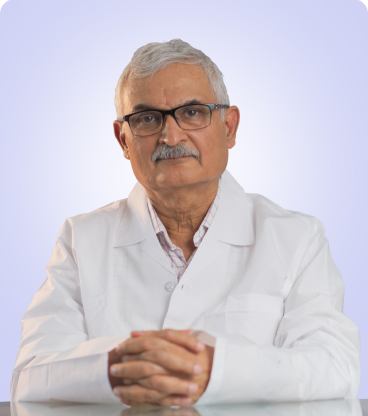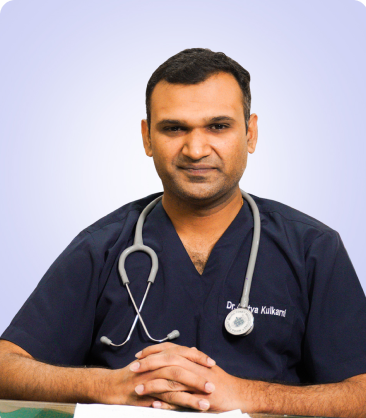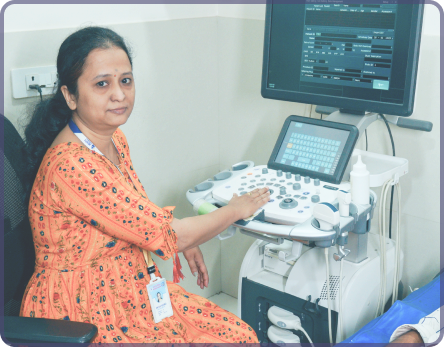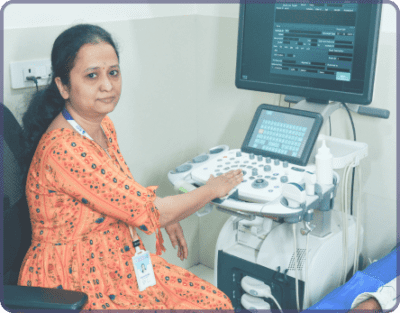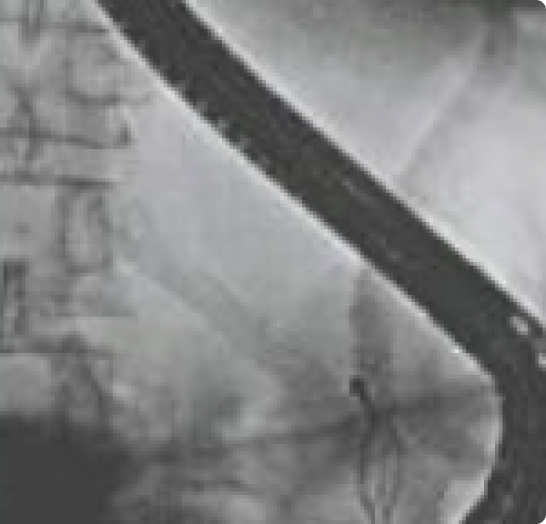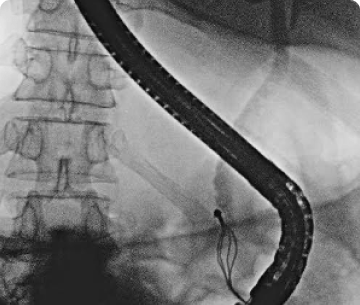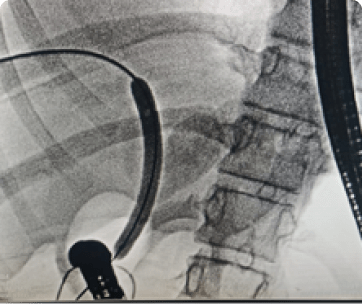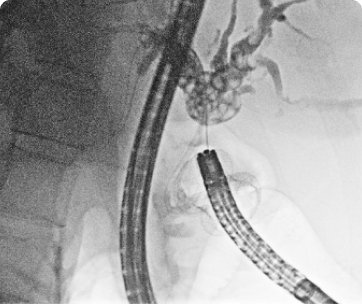ABDOMINAL PAIN
The abdominal region is below the chest ribs & groin. The abdominal pain may be mild & short-lived due to gas, indigestion, or constipation. Severe & pain lasting for more than a few days needs medical attention
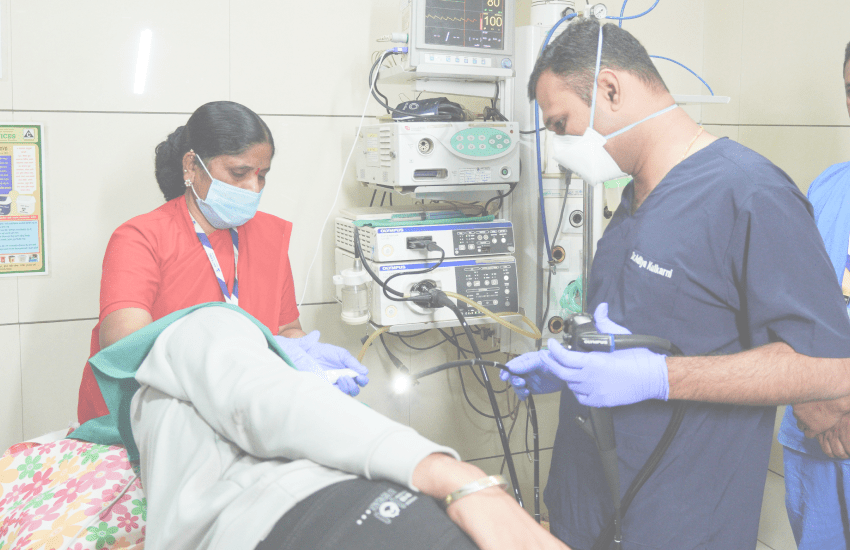
ABDOMINAL PAIN

The abdominal region is below the chest ribs & groin. The abdominal pain may be mild & short-lived due to gas, indigestion, or constipation. Severe & pain lasting for more than a few days needs medical attention
OVERVIEW
The abdominal region is below the chest ribs & groin. The abdomen has many organs like the stomach, small & large intestines, liver, gall bladder, pancreas, kidneys, etc. The abdominal pain may be mild & short-lived due to gas, indigestion, or constipation. Severe & pain lasting for more than a few days needs medical attention. The alarm signs indicating severe illness can be mild pain but associated with loss of appetite, recent onset constipation, weight loss, jaundice, weakness, anemia, blood vomiting & blood & mucus in stool. Emergency indications are severe unbearable pain, blood vomiting, distension of the abdomen, significant pain on pressure, tight abdomen & unable to pass stool. Acidity causes a burning sensation, pain in the upper abdomen & chest, along with indigestion & burping. Similar symptoms, along with pain in the back, shoulders, or jaws, may be due to heart disease known as angina but may be confused with acidity.
Peptic Ulcer: Upper abdominal pain & burning related to food intake, Appendicitis ( Swelling of Appendix): Pain in the right lower abdomen, Gall Bladder stone: Right upper abdominal pain with or without jaundice, Kidney Stone: Abdominal & back pain reaching upto genitalia( Private Parts) along with a burning sensation while passing urine, Pancreatitis: Severe upper abdominal pain and back pain with vomiting, Stomach & Intestinal Cancer: Pain for few weeks to months along with loss of appetite, blood & mucus in stool, altered bowel habits, weight loss, weakness & anemia, which are known as alarming signs.
Abdominal pain can be caused by various medical conditions, from mild to life-threatening. A proper diagnosis requires a thorough medical history, physical examination, and possibly additional diagnostic tests. Here are the steps that a healthcare provider may take to diagnose abdominal pain:
Medical history,
Physical examination
Diagnostic tests
Blood tests.
Urine tests
Imaging tests.
Endoscopy
Once a diagnosis is made, treatment will depend on the underlying cause of the abdominal pain. Treatment may include medication, lifestyle changes, or surgery.
The doctor may advise Blood tests, Urine & stool examination & if felt necessary doctor may recommend Sonography &/ or Upper G I Endoscopy (Gastroscopy) or Colonoscopy. You should preferably visit the doctor in a fasting state & carry all your previous health records.
The further treatment will be decided on the result of tests & diagnosis.
It is essential to seek medical attention if you experience abdominal pain that is severe, persistent, or accompanied by any of the following symptoms:
Fever
Nausea or vomiting
Diarrhea or constipation
Bloody stools
Difficulty breathing
Dizziness or lightheadedness
Chest pain
Yellowing of the skin or eyes (jaundice)
Unusual vaginal bleeding
Painful or frequent urination
These symptoms may indicate severe medical conditions requirings prompt evaluation and treatment by a healthcare professional. It is also essential t to seek medical attention if you have a history of abdominal surgery or a chronic medical condition that affects the abdomen, as you may be at a higher risk for complications. If you are unsure whether your symptoms require medical attention, it is best to err on the side of caution and seek advice from a healthcare professional.
Peptic Ulcer: Upper abdominal pain & burning related to food intake, Appendicitis ( Swelling of Appendix): Pain in the right lower abdomen, Gall Bladder stone: Right upper abdominal pain with or without jaundice, Kidney Stone: Abdominal & back pain reaching upto genitalia( Private Parts) along with a burning sensation while passing urine, Pancreatitis: Severe upper abdominal pain and back pain with vomiting, Stomach & Intestinal Cancer: Pain for few weeks to months along with loss of appetite, blood & mucus in stool, altered bowel habits, weight loss, weakness & anemia, which are known as alarming signs.
Abdominal pain can be caused by various medical conditions, from mild to life-threatening. A proper diagnosis requires a thorough medical history, physical examination, and possibly additional diagnostic tests. Here are the steps that a healthcare provider may take to diagnose abdominal pain:
Medical history,
Physical examination
Diagnostic tests
Blood tests.
Urine tests
Imaging tests.
Endoscopy
Once a diagnosis is made, treatment will depend on the underlying cause of the abdominal pain. Treatment may include medication, lifestyle changes, or surgery.
The doctor may advise Blood tests, Urine & stool examination & if felt necessary doctor may recommend Sonography &/ or Upper G I Endoscopy (Gastroscopy) or Colonoscopy. You should preferably visit the doctor in a fasting state & carry all your previous health records.
The further treatment will be decided on the result of tests & diagnosis.
It is essential to seek medical attention if you experience abdominal pain that is severe, persistent, or accompanied by any of the following symptoms:
Fever
Nausea or vomiting
Diarrhea or constipation
Bloody stools
Difficulty breathing
Dizziness or lightheadedness
Chest pain
Yellowing of the skin or eyes (jaundice)
Unusual vaginal bleeding
Painful or frequent urination
These symptoms may indicate severe medical conditions requirings prompt evaluation and treatment by a healthcare professional. It is also essential t to seek medical attention if you have a history of abdominal surgery or a chronic medical condition that affects the abdomen, as you may be at a higher risk for complications. If you are unsure whether your symptoms require medical attention, it is best to err on the side of caution and seek advice from a healthcare professional.
Don’t wait!!
Get consulted with our GI specialist today
Book your appointment effortlessly.
FREQUENTLY ASKED QUESTIONS

MEET OUR DOCTORS
Our team comprises of well experienced and skilled medical professionals from all the allied medical specialties helped by young enthusiastic doctors.
MEET OUR DOCTORS
Our team comprises of well experienced and skilled medical professionals from all the allied medical specialties helped by young enthusiastic doctors.




